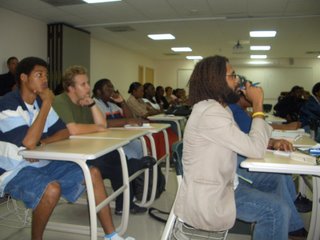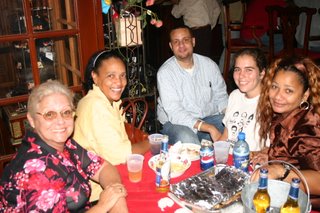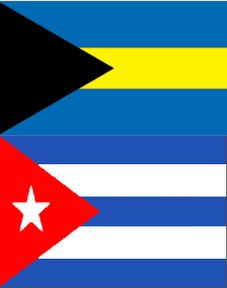In this article taken from the Washington Post, some of the U.S.'s double standards with regard to the so-called "war on terrorism" are outlined.
The Washington Post
In 30-Year-Old Terror Case, a Test for the U.S.
Decision Due on Cuban Exile Suspected in Airliner Blast
By Manuel Roig-Franzia
Washington Post Foreign Service
Thursday, October 5, 2006; A20
HAVANA -- A quarter-century before the Sept. 11, 2001, terrorist attacks, a bomb ripped a gash in a civilian jetliner in the skies off Barbados.
The Cubana Airlines plane plummeted into the Caribbean Sea just before noon on Oct. 6, 1976. All 73 people on board died, including teenage members of Cuba's national fencing team who were returning to Havana after winning gold and silver medals at a tournament in Venezuela.
The attack marked a new era of fear. It was the first act of midair airline terrorism in the Western Hemisphere.
The 30th anniversary of the bombing is Friday, and it coincides with a critical juncture in the case of Luis Posada Carriles, a main suspect in the bombing who has been held on immigration charges in the United States for the past 16 months.
Posada Carriles's legal odyssey has turned into a diplomatic quandary for the Bush administration and a test of the president's post-Sept. 11 credo that nations that harbor terrorists are guilty of terrorism. While the United States does not want to free a terrorism suspect, it is also reluctant to send him to Cuba or Venezuela, countries that not only remain hostile to the Bush administration but that, according to court testimony of a Posada Carriles ally, also might torture him.
Attorneys for the Justice Department must respond by Thursday to a Texas magistrate's recommendation that Posada Carriles be freed by a federal judge because he has not been officially designated as a terrorist in the United States and cannot be held indefinitely on immigration charges.
"This is the moment of truth for the Bush administration," said Peter Kornbluh, a senior Cuba analyst with the National Security Archive, a nonprofit research library at George Washington University.
The prospect of freeing Posada Carriles, who is also a suspect in a series of 1997 hotel bombings in Havana that left one Italian tourist dead, has outraged Cuban leaders. Havana is papered with Cuban government posters and billboards invoking President Bush's position on harboring terrorists.
"It's as if you were to say to the American people that country X has found Osama bin Laden, who arrived without a passport or a visa, and that he is being held as an illegal immigrant but will not be sent back to the U.S.," Ricardo Alarcón, president of Cuba's general assembly, said in an interview.
Posada Carriles, 78, sneaked into the United States in March 2005. He did little to hide his presence in Miami's exile community and joked about being recognized at doctors' appointments. He wasn't arrested until he gave a newspaper interview and appeared at a news conference in May 2005, moves that seemed to taunt law enforcement officials.
At the time of his arrest, Posada Carriles, who was born in Cienfuegos, Cuba, had spent more than four decades engaged in fruitless schemes to kill Cuban leader Fidel Castro and topple his government. The immigration judge who oversaw Posada Carriles's case said his history "reads like one of Robert Ludlum's espionage thrillers with all the plot twists and turns Ludlum is famous for."
Posada Carriles was trained by the CIA, along with other Cuban exiles, for the botched Bay of Pigs invasion in 1961. He eventually made his way to Venezuela, where he became head of the secret police surveillance division.
Venezuelan officials later accused him of masterminding the Cubana bombing, which claimed the lives of 57 Cubans, as well as passengers from Guyana and North Korea. But he escaped from a Venezuelan prison in 1985 while prosecutors were appealing his acquittal in a military trial.
Since then, he has survived a 1990 assassination attempt, which scarred half his face, and has managed to wriggle out of legal trouble while on the run in Central America. He was arrested in 2000 in Panama for allegedly plotting to set off 30 pounds of explosives during a speech by Castro at the University of Panama, but the charges were dropped.
Posada Carriles's attorney has said that his client, who has a heart condition, no longer plans violence against the Castro government.
"The Cuban government is in a very deteriorated condition, inexorably reaching its end, and I sincerely believe that nothing would help to go back to the past with sabotage campaigns," Posada Carriles said in a statement released by his attorney.
U.S. officials see the aging Castro opponent as a more sinister figure. A field officer at the Department of Homeland Security who follows Posada Carriles's case described him as a "present danger to the community" whose "propensity to engage in terrorist activities poses a national security risk to the United States."
All of which makes the actions of the U.S. government in the case puzzling to critics, who say Posada Carriles should be prosecuted or at least confined to prison. Even some Cuba hard-liners in the United States confide privately that the case has turned into an embarrassment for the United States.
"They're just dancing around," Wayne Smith, a former head of the U.S. Interests Section in Havana and vocal critic of the Bush administration's Cuba policies, said of prosecutors. "They have all kinds of evidence against him."
It's clear that the U.S. government would prefer to make Posada Carriles someone else's problem. According to court documents, the Department of Homeland Security failed to persuade seven countries to take him -- Canada, Mexico, Panama, El Salvador, Honduras, Guatemala and Costa Rica. The magistrate in Posada Carriles's case said that the Justice Department could have legally held him for a longer period if it had officially certified him as a terrorist, but that prosecutors did not do so.
"The problem is that the American government created him, it taught him, and now it's hard for the government to punish him," Camilo Rojo Alvarez, son of a crew member who died in the 1976 attack, said in an interview.
Much of the evidence against Posada Carriles has been drawn from the U.S. government's own files, including declassified FBI and CIA documents. One declassified CIA intelligence report, citing information from informants, said Posada Carriles attended a $1,000-a-person fundraising and planning dinner for anti-Castro activities in September 1976 along with Orlando Bosch, another prime suspect in the Cubana bombing.
Not long afterward, the report stated, Posada Carriles said, "We are going to hit a Cuban airplane. Orlando has the details."
Bosch was once in a position similar to Posada Carriles, and the outcome of his case unnerves Cubans now focused on Posada Carriles. In 1990, the administration of George H.W. Bush released Bosch from prison after he, like Posada Carriles, was caught entering the country illegally. Cuba had been the only country willing to take him and the U.S. refused to send him to the island.
Bosch, an 80-year-old retired physician who now lives in a Miami suburb, has stopped just short of claiming that his and Posada Carriles's group was responsible for the Cubana bombing.
Earlier this year, he told the Spanish newspaper La Vanguardia that the Cubana flight was a "legitimate target." And in an Atlantic Monthly interview with "Cuba Confidential" author Ann Louise Bardach that is to be published this week, Bosch said: "We were at war with Castro, and in war, everything is valid."
Declassified documents state that the two men who placed the bomb on the Cubana flight worked for Posada Carriles. After getting off the plane in Barbados, one of the men called his girlfriend, who was also a Posada Carriles employee, and delivered a coded message to report the attack was successful. The message: "The bus was fully loaded with dogs."







